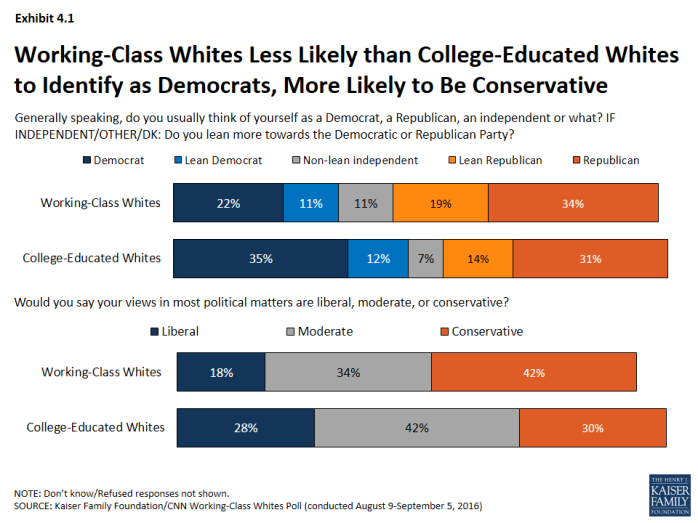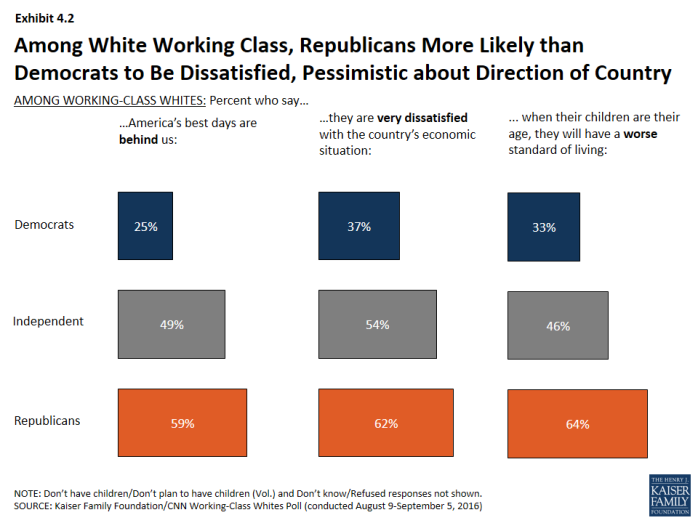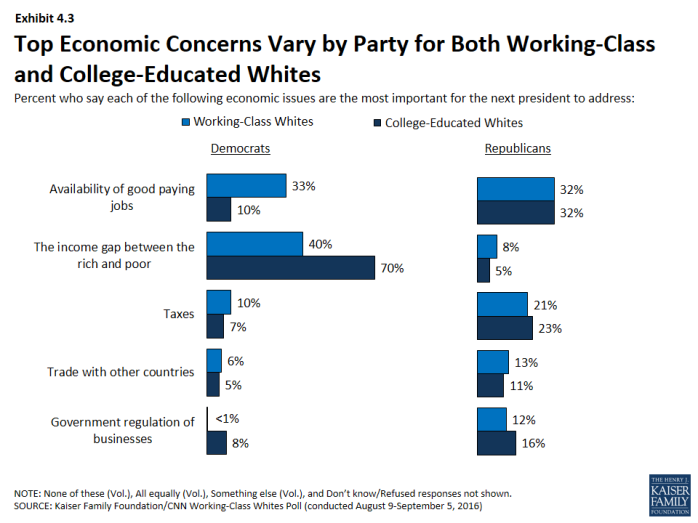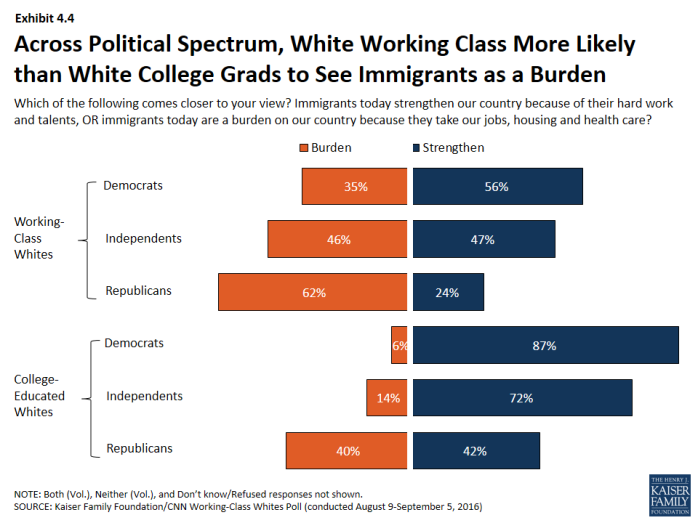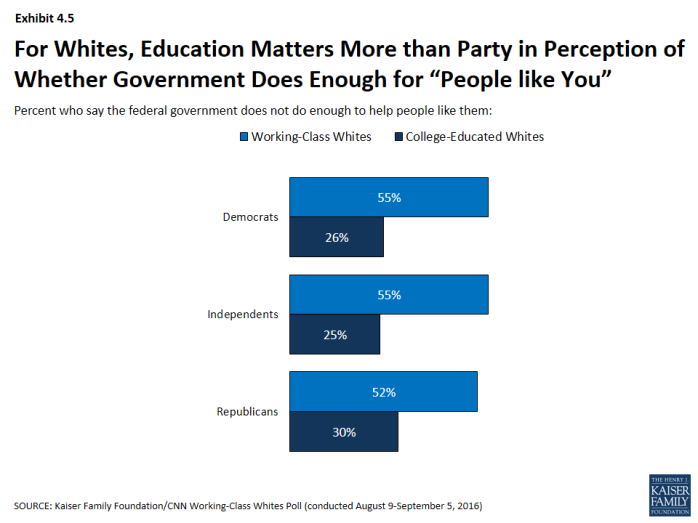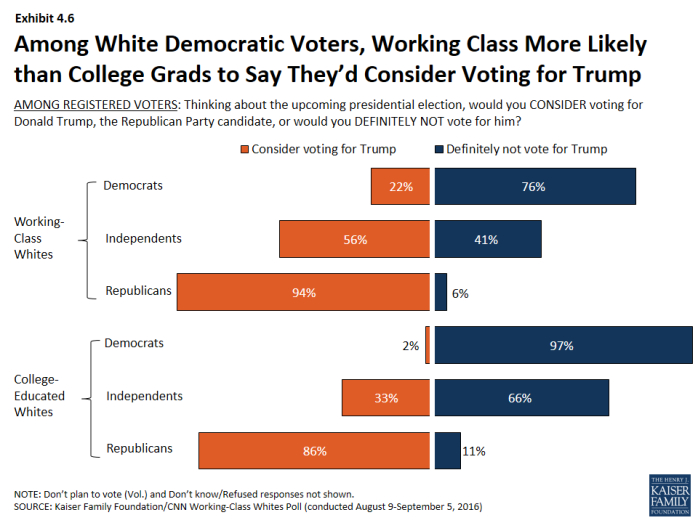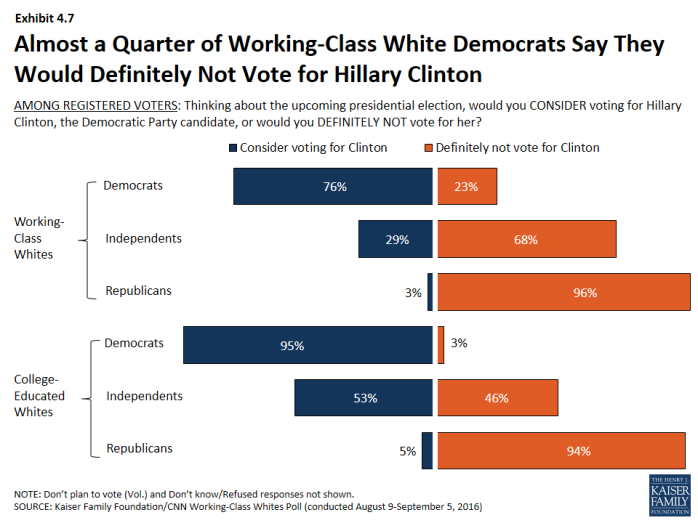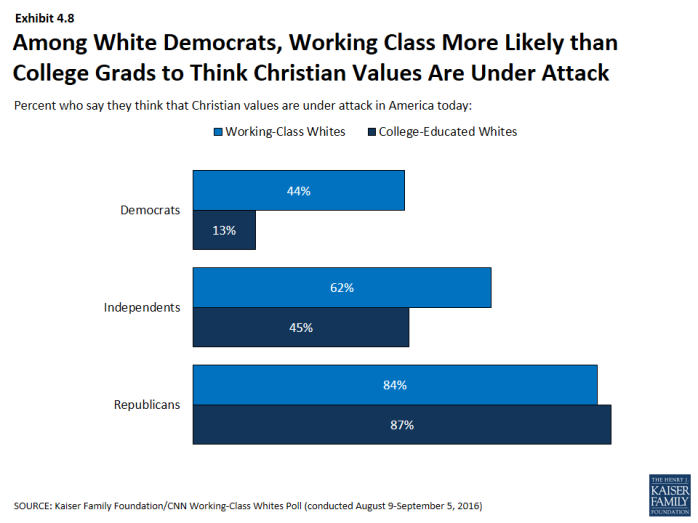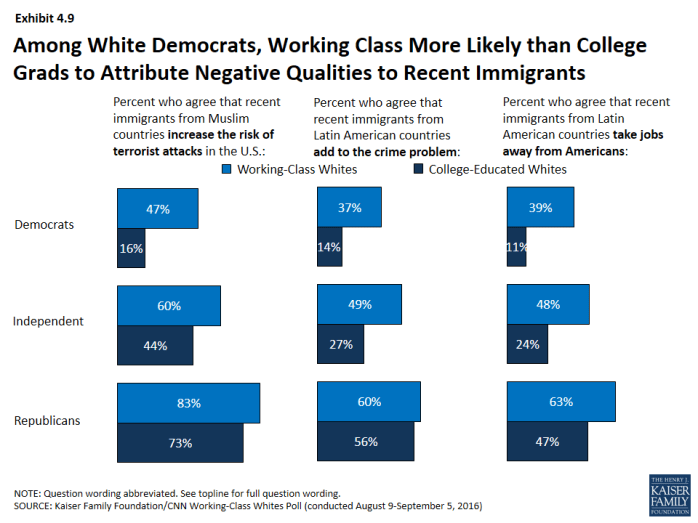Kaiser Family Foundation/CNN Working-Class Whites Poll
Section 4: Politics and Partisanship
The survey reveals some large partisan gaps within the white working class, but also some areas where the attitudes of white partisans without college degrees differ sharply from their college-educated counterparts.
- Politically, whites without a college degree are about as likely as college-educated whites to identify as Republicans (34 percent versus 31 percent), but much less likely to identify as Democrats (22 percent versus 35 percent]. Four in ten working-class whites (42 percent) identify as conservative, while just 18 percent call themselves liberal (Exhibit 4.1).
- Among working-class whites, Republicans are much more likely than Democrats to say America’s best days are behind us (59 percent versus 25 percent), that they’re very dissatisfied with the country’s economic situation (62 percent versus 37 percent), and that they expect their children to have a worse standard of living than they do now (64 percent versus 33 percent) (Exhibit 4.2).
- Partisanship sharply divides what members of this group see as the top economic issue for the next president to address. Among Democrats in this group, 40 percent say the income gap between the rich and poor, 33 percent say the availability of good paying jobs, 10 percent say taxes, a scant 6 percent say trade and almost none cite government regulation of business. For Republicans in this group, jobs rank first (32 percent), followed by taxes (21 percent), with 13 percent pointing to trade, 12 percent to regulation and just 8 percent to the income gap (Exhibit 4.3).
- When asked about increasing racial and ethnic diversity generally and immigration specifically, there is a partisan gap among working-class whites. However, both Democrats and Republicans in this group tend to see those changes as more negative/threatening than do their college-educated counterparts. For example, the poll reveals a divide on whether immigrants to the U.S. strengthen or burden the country, with white working class Republicans most apt to see them as a burden (62 percent), 22 percentage points higher than among white Republicans with college degrees (40 percent]. Meanwhile, working-class white Democrats are almost 30 points more apt than college-grad white Democrats to say the same (35 percent versus 6 percent) (Exhibit 4.4).
- Having a college degree seems to play a bigger role than partisanship in people’s assessments of whether the federal government is doing enough to help people like them. About half of working-class white Democrats (55 percent) and Republicans (52 percent) say the federal government isn’t doing enough for “people like you,” while both Democrats and Republicans with college degrees are far less likely to say the same (26 percent and 30 percent, respectively) (Exhibit 4.5).
- There are some signs in the poll that white Democrats without college degrees are not as unified behind the Democratic Party as are Democrats with college degrees. For example, 22 percent of self-identified Democrats who are working-class white voters say they would consider voting for Donald Trump, versus just 2 percent of white Democrats with college degrees (Exhibit 4.6). And fully 23 percent of this group of Democrats say they would definitely not vote for Hillary Clinton, well above the 3 percent of white Democrats with college degrees who say the same. Republicans are more unified across this educational divide (Exhibit 4.7).
- More than 4 in 10 working-class white Democrats (44 percent) say Christian values are under attack in America today, compared with just 13 percent of white college-grad Democrats. More than 8 in 10 white Republicans say the same, regardless of education level (Exhibit 4.8).
- While white working class Democrats express mostly positive impressions of immigrants from Muslim and Latin American countries, they are considerably more likely than college-educated white Democrats to express skepticism of these immigrants. For example, 47 percent of white working class Democrats say immigrants from Muslim countries increase the risk of terrorist attacks in the U.S., compared with just 16 percent of college-educated white Democrats. And white working class Democrats are more than twice as likely as college-educated white Democrats to say immigrants from Latin American countries add to the crime problem (37 percent versus 14 percent), and more than three times as likely to say these immigrants take jobs away from Americans (39 percent versus 11 percent) (Exhibit 4.9).
x
Exhibit 4.1
x
Exhibit 4.2
x
Exhibit 4.3
x
Exhibit 4.4
x
Exhibit 4.5
x
Exhibit 4.6
x
Exhibit 4.7
x
Exhibit 4.8
x

